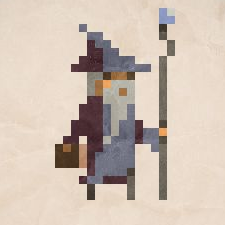Today, for the first time, I couldn’t use iplayer. As usual, I switched country to UK, cleared browsing data, deleted everything from temp app data file before going there. Was using Firefox. Tried same procedure with Epic browser. Same result. Chatted with Nord support. They wanted screenshots of results from dnsleaktest dot com. Tech said wait while they checked it out. After a little while, chat terminated. Created a ticket via email.
Have BBC finally made themselves bullet-proof?
If rich people and corporations are going to fuck the internet so hard it’s unusable, we should make a new internet. One with blackjack and hookers.
It’s called the dark web and unfortunately they went WAYYY past Black Jack and hookers. I think you can go on there and buy a person…that ended up being the FBI the whole time.
The “Dark Net” generally is still HTTP(s) with extra layers on-top, e.g the Tor Network or I2P
We’re more likely looking at something like Gemini
Ohhhhh…this looks neat!
I agree! It’s actually it’s own protocol, being built on top of the IP (internet protocol) ofc
The webpages are essentially pure text. No JS, and everything is designed to be super privacy-friendly. Gemini is like the pinnacle of the SmallWeb
If you add male strippers, gay 4 pay rough trade, and four card poker I’m all in.
20$ is 20$
Well fuck. I can’t wait to try to explain this to my 65 year old parents who basically only watch British tv via VPN…
And this is why I only torrent and use third-party software for my media consumption needs
Can’t take it away if I already have it in my harddrive.
I mean they can, but they have to find me first.
@riley0 let me check via my Tailscale UK exit node …
… checked. Still works.
I don’t know whether I’m knowledgeable enough for Tailscale, but I’ll give it a try. Thanks.
@riley0 Your other comment hasn’t federated to my server so I can’t reply directly. Replying here instead.
Tailscale isn’t a VPN in the same way Nord is, where it directs all your traffic through an external server. Rather, it’s a system for creating a “tailnet” of all the machines you install it on. It creates a personal little clique.
For example, if installed on your phone and home PC, they can connect to each other anywhere in the world as if they are on the same network.
In addition, you can designate any machine in your tailnet as an “exit node”, and optionally route all your traffic through it. This way, when out and about on 4G/5G, you can appear to be coming from home.
Now I have machines in two countries. One happens to be the UK. By setting the AppleTV in the UK as my exit node, I look like I’m coming from my home ISP there. It’s resistant to VPN blocking precisely because it isn’t like Nord: it’s literally just my home IP address.
So iPlayer works, Netflix login sharing works, and all that good stuff, because everything looks to be coming from one site.
But that’s MY exit node, uniquely part of MY tailnet. If you don’t have a suitable exit node located, Tailscale won’t help you.
Now Tailscale has just partnered with a traditional VPN provider to give you public exit nodes, Nord-style, but that’s susceptible to the same sort of traffic analysis and blocking that they’re using to target Nord, AIUI.
Nord is still useful for torrenting, but for directly accessing geo restricted services, it seems to be losing the arms race.
So you may need to resort to torrenting.
Thanks for that explanation. I have seen references to Tailscale forever and even looked at the official web site… And you explained it better than they did.
Thanks for the clearest explanation of Tailscale I’ve read.
How is this different from a VPN provider? Both are breaking out from a node in the country where you want to consume your media. Only one is used by 1000’s, one is used just by you.
Not dissing tailscale or anything. But just curious from a technical pov.
Commercial VPN-providers IP-addresses are known, and easily identified by things like the amount of traffic coming from them.
A single user connecting from a residential IP’s indistinguishable from legitimate traffic.
@tordenflesk @Fraeco this is exactly the thing. We leave a very different footprint and it’s not one they’re looking for.
Interesting write-up. But I wonder e.g. what the benefit of this would be over using Wireguard? It’s easy enough to set up on a UK router and then with a tap of the button you’re sending requests via your personal VPN to UK to the internet.
@janguv Don’t need to poke holes in your firewall for Tailscale, which is a positive.
Tailscale is wireguard but even easier.
@riley0 you’ll need an exit node, is the issue.
mulvad is here to help. unless your already using mulvad and bbc blocked their ips.
No, I have Nord. At the time I subscribed, I hadn’t discovered all the wondrous things on Sail the High Seas or FMHY. Nord looked like my best bet judging by search engine results.
I just tried Tailscale. Downloaded & installed, then nothing. Task Manager told me their GUI was running, but I didn’t see it. Repaired (via uninstall) & tried again. Same. Uninstalled & reinstalled. Same. Tried running as admin, just in case. Same. I’ll try again another time.
nord is a double edge sword w/ all their advertising. more customers but more government notice. iplayer may have borked nords ips or nord might just be fuckin up. doesn’t seem like you need tailscale, seems like you need a different vpn to test with. mulvad is an easy recommendation, but i recommend shopping around and finding somebody you can conceivably trust. because when you route your internet through them you should probably personally vet past their ads.
thanks
BBC could ID a VPN IP address based on usage and concurrent sessions, but honestly most companies that block VPNs just purchase IP address lists from any number of vendors. Pixalate and DoubleVerify are two that I’ve worked with in the past that both provide that data to clients. They rarely ever block entire IP blocks though, so you might just try reconnecting from a different location/server within the UK until you land on one that works (if any).
It used to be that they didn’t throw me out before I got to a program’s page. Today, upon login, they redirected me to BBC’s main page. Google tells me this: “In addition to the measures listed above, the BBC is also reportedly working on a new anti-VPN measure that uses machine learning to identify and block VPN traffic. This measure is still under development, but it has the potential to be more effective than the BBC’s current anti-VPN measures.”
Machine learning, making just about everything progressively worse.
I’m pretty sure ML is how Pixalate and DoubleVerify were building their lists, too. The difference is they were footing the bill in terms of resources and time spent to develop a solution. Training ML isn’t hard, its just really time consuming.
deleted by creator
What makes you thing the man is trying to VPN with his BBC?










